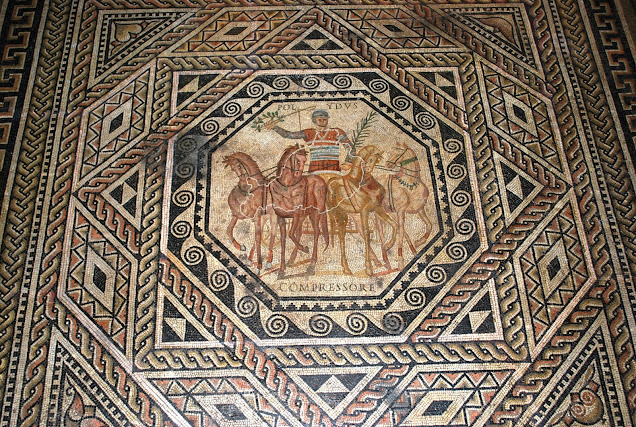'Thumbs down'
The emperors, family and friends are entertained by dancers, rhetorics, musicians and various others artists. More serious business is suggested - although not shown - in an amphitheater. While bored with the spectacle Caligula uses his power over life and death. With the 'thumb down' gesture he condemnes a 'Thracian' or thraex to be killed (scroll to 4:07 minutes).
But it is unclear whether this gesture was really used. In modern popular culture, it is assumed that "thumbs down" was the signal that a defeated gladiator should be condemned to death; "thumbs up", that he should be spared, a view popularized by a widely reproduced painting by the 19th-century artist Jean-Léon Gérôme, whose Pollice Verso (usually known in English as "Thumbs Down") depicts a triumphant gladiator looking up into the stands for the verdict of the crowd. However, the type of gesture described by the phrase pollice verso and its meaning is unclear in the historical and literary record. Nevertheless, a great episode in "I Claudius".





Reacties
Een reactie posten